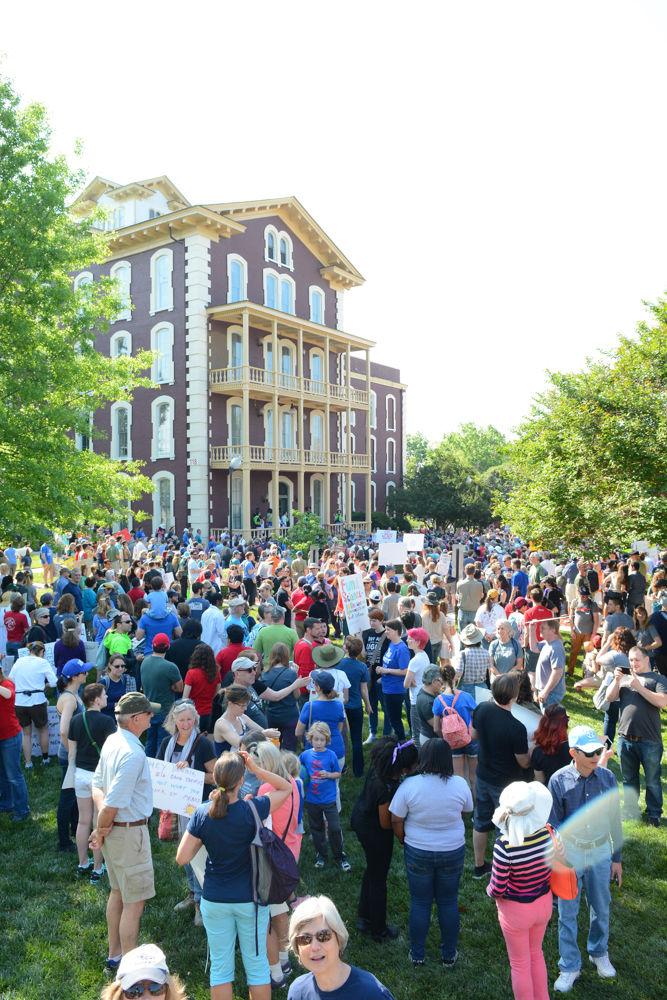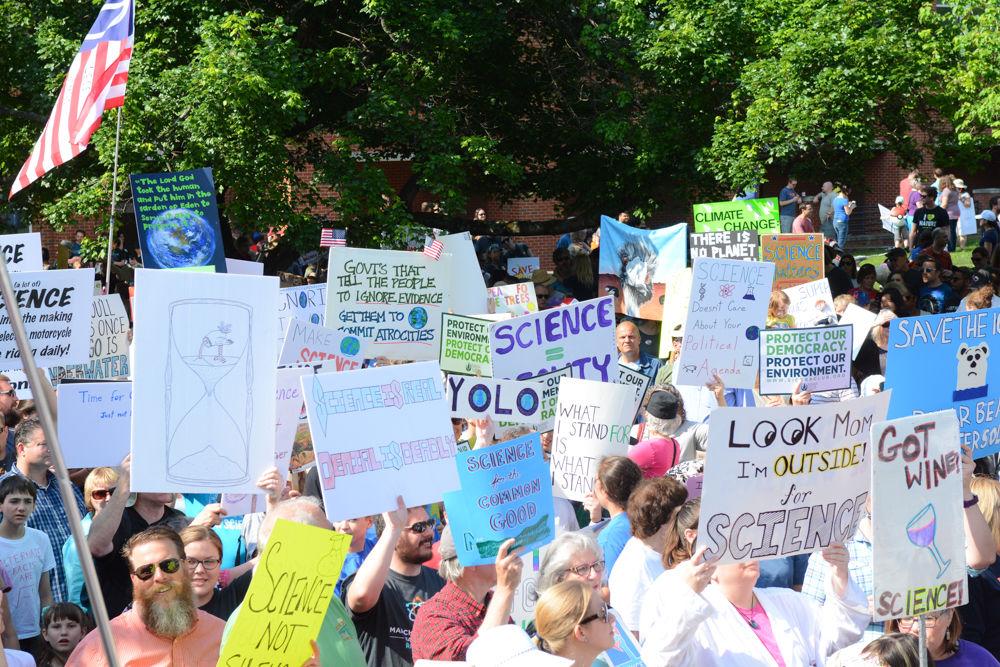North Carolina citizens, professors and students gathered in downtown Raleigh Saturday morning to advocate on behalf of science and protest political movements they believe undermine its legitimacy. The march was one of multiple happening across the world on Earth Day.
Protesters in Raleigh gathered on the campus of Shaw University, many arriving between 9 and 10 a.m. They marched past the State Capitol into Moore Square, where a “science fair” displaying the work of local scientists and other organizations awaited them. Speakers, including some NC State and UNC-Chapel Hill professors, also addressed the crowd in Moore Square.
Jamila Simpson is the assistant dean for diversity and student services in the College of Sciences. She spoke about the importance of diversity, specifically in discipline and personal background, to science and its perceived legitimacy.
“It’s a waste of time and energy to ignore different populations,” Simpson said. “It has real results and impacts on society. You don’t want any group of people feeling like science is ‘the other.’”
Fred Gould, distinguished professor of entomology and plant pathology, also addressed the crowd. He said that NC State is a powerhouse of science and technology education and spoke about the important role that scientists play in informing policy decisions.
“We need to figure out how to build the trust of the people and policy makers,” Gould said. “They need to know that when we say the globe is warming because of people, that we’re not saying that just because we’re Democrats or something.”
According to Gould, figuring out how to build the trust of the public and policy makers would involve answering the question of how distrust has been sowed.
“We have to ask: Did people always trust science, and is this [distrust] new?” Gould said.
Many speakers, organizers and volunteers at the march spoke about the vital role science plays in a well-functioning society.
“We know that science contributes to the growth of our society and contributes to innovation, and if we short-circuit that, then we tend to possibly lose the planet,” said Darrell Stover, a lecturer in interdisciplinary studies and designated “hype man” for the event.
Stover also said that he was impressed by the diversity of people who showed up to the event, and spoke about the importance of many disciplines being represented at the march.
According to the core organizing team for the event, the March for Science was, in part, meant to create visibility for these diverse disciplines.
Bailey Bruce, one of the 12 core organizers of the march, arranged for ribbons to be handed out to march participants. Participants wrote their reason for coming to the event on the ribbon.
“Write something that you learned today, write why you’re marching today, better yet talk to someone else and write why they’re marching,” Bruce said. “I really wanted a physical reminder of this.”
Elliott Holliday, a junior studying physics, attended the march because he was tired of the federal and state governments “not respecting science.” He said he was pleased to see three NC State professors speaking at the event, and that NC State has an “obligation” to produce people who can promote science to the public.
“NC State produces people who can do science,” Holliday said. “What that means is that these people who can do science can go out into the world and influence the political realm at the same time.”
Lauren Siegel, a junior studying computer science, was also at the march. She agreed with Holliday that science should influence politics, and not vice versa.
“A few people have already said something to this effect, but I think science should influence policy, not the other way around,” Spiegel said.
Ginnie Hench, also one of the 12 core organizers of the march, said that planning for the march started the week following the Women’s March, which was Jan. 21. She sees a need for a people’s movement for science because she believes science should better serve the needs of the public.
“I would like to see some changes in science so that it’s not just scientists here and activists and people with community concerns over here, that there is a permeable barrier (or un-barrier),” Hench said.
Matt Murchison, another organizer of the march, spoke about the importance of effectively communicating about science to the public and his hope that building public understanding of science would lend it greater perceived legitimacy.
“I think we are in a place where there are facets of our leadership that are aggressively not supporting scientists or science itself,” Murchison said. “We wanted to make sure that North Carolina stayed at the forefront … We should be leaders nationwide, and around the world, as far as the students, scientists and research we’re producing.”
Signs, some which criticized the current federal administration's stance on science funding and others which were creative puns supporting science, abounded at the first ever Raleigh March of Science held on Earth Day, April 22, 2017. This march was one of more than 500 marches held across the world and thousands of protestors came out in Raleigh to support the scientific community.









